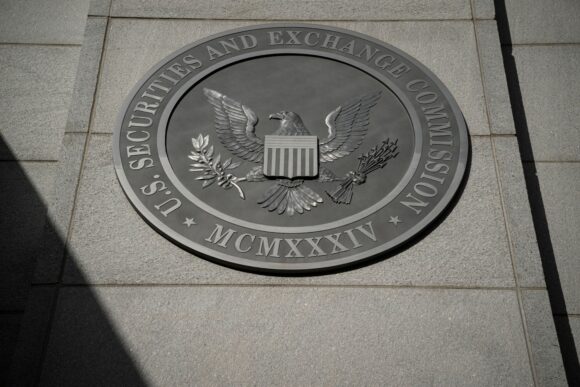Wall Street’s main regulator on Wednesday is set to demand more investor protections for deals involving special purpose acquisition companies, tightening rules on a once-popular pathway for taking firms public.
After surging during the Covid-19 pandemic as an alternative to traditional initial public offerings, blank-check companies have fallen out of favor during a years-long crackdown by the Securities and Exchange Commission. In a move that could further reduce interest, the SEC’s new rules would bring investor protections in SPAC deals closer to those of traditional IPOs — driving up legal risks and costs for those behind the transactions.
The use of blank-check companies, which list on public stock exchanges to raise money so they can buy other companies, was once touted as a faster and potentially cheaper way to do a public listing. But critics have long warned that deals can be rife with conflicts of interest and amount to an end-run of the traditional IPO process.
Related: SPAC Mania’s Ugly End Yields $46 Billion of Investor Losses in 2023 | Great SPAC Crash of 2022 Deepens as Investors Cash Out in Droves
The regulations, which were first proposed in March 2022, would revoke legal protections that shielded sponsors of the deals from getting sued by investors over embellished statements. They would require the later part of the transaction, the so-called de-SPAC, to include more disclosures around forward-looking projections.
Even without the new rules in place, the once white-hot market for SPACs fizzled as the SEC’s enforcement division stepped up scrutiny and interest-rate increases damped demand for risky investments. Just a few dozen blank-check companies went public last year after hundreds did so in the 2021 heyday, according to data from SPAC Research.
After the SEC proposed the rule changes, underwriters including Goldman Sachs Group Inc. and Bank of America Corp. pulled back on their services for the market within a matter of months.
As part of its final rule, the SEC will issue guidance on when it will consider firms to be underwriters, according to the agency. SPAC sponsors, frequently hedge funds, private equity firms and venture capital investors, would also have to reveal more information about their identities, conflicts of interest, dilution and compensation.
If a majority of the agency’s five commissioners vote to approve the rules, they will go into effect more than four months from now.
Photo: Photographer: Graeme Sloan/Bloomberg
Was this article valuable?
Here are more articles you may enjoy.



 Florida Regulators Crack the Whip on Auto Warranty Firm, Fake Certificates of Insurance
Florida Regulators Crack the Whip on Auto Warranty Firm, Fake Certificates of Insurance  Insurify Starts App With ChatGPT to Allow Consumers to Shop for Insurance
Insurify Starts App With ChatGPT to Allow Consumers to Shop for Insurance  Judge Tosses Buffalo Wild Wings Lawsuit That Has ‘No Meat on Its Bones’
Judge Tosses Buffalo Wild Wings Lawsuit That Has ‘No Meat on Its Bones’  AI Claim Assistant Now Taking Auto Damage Claims Calls at Travelers
AI Claim Assistant Now Taking Auto Damage Claims Calls at Travelers 

